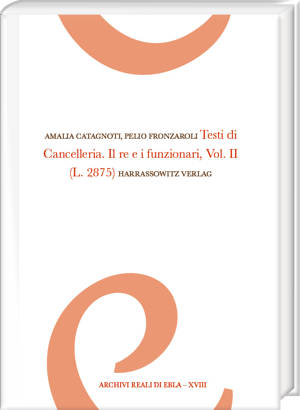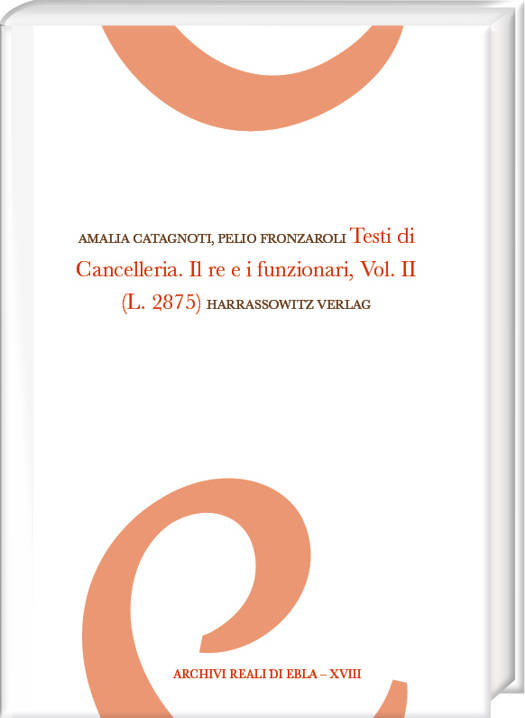
Je cadeautjes zeker op tijd in huis hebben voor de feestdagen? Kom langs in onze winkels en vind het perfecte geschenk!
- Afhalen na 1 uur in een winkel met voorraad
- Gratis thuislevering in België vanaf € 30
- Ruim aanbod met 7 miljoen producten
Je cadeautjes zeker op tijd in huis hebben voor de feestdagen? Kom langs in onze winkels en vind het perfecte geschenk!
- Afhalen na 1 uur in een winkel met voorraad
- Gratis thuislevering in België vanaf € 30
- Ruim aanbod met 7 miljoen producten
Zoeken
Testi Di Cancelleria. Il Re E I Funzionari, Vol. II
(Archivio L. 2875)
Amalia Catagnoti, Pelio Fronzaroli
€ 230,95
+ 461 punten
Omschrijving
This volume concludes the publication of the chancery documents found in the Royal Palace G of Ebla. The texts have been found (with the exception of no. 21) in L.2875 together with other tablets of different typology, all to be dated to the very last period of Ebla. The chancery texts published in the previous volumes ? ARET XIII (Rome, 2003) and ARET XVI (Rome, 2010) ? were instead kept in the Central Archive L.2769, whereas L.2875 is the small vestibule south of the main Archive Room. Texts 1-20 are letters. Text 1, written by king Yi?gar-Damu, relates events, connected with a treaty with the city of Armi, to be dated approximately two years before the fall of Ebla. Text 2 was addressed by the king and ?ubu?-Hadda (a son of the minister who played an important role in the administration) to the vizier Yibbi?-?ikir. Several other letters were sent to the king by Yibbi?-?ikir, when the vizier was far from Ebla. Text 7 includes regulations of cult obligations, specifying the procedures for oracular interrogation. Text 21, from L.2769, is a very peculiar document, reconstructed from 25 fragments. It collects several legal procedures relating to the management of properties, to the journeys made by itinerant judges and superintendents of merchants, and to the fulfilment of obligations following the death of a man. The volume also includes an index complemented by the interpretations proposed for the Semitic spellings.
Specificaties
Betrokkenen
- Auteur(s):
- Uitgeverij:
Inhoud
- Aantal bladzijden:
- 196
- Taal:
- Engels, Italiaans
- Reeks:
- Reeksnummer:
- nr. 18
Eigenschappen
- Productcode (EAN):
- 9783447114752
- Verschijningsdatum:
- 16/09/2020
- Uitvoering:
- Hardcover
- Formaat:
- Genaaid
- Afmetingen:
- 214 mm x 19 mm
- Gewicht:
- 906 g

Alleen bij Standaard Boekhandel
+ 461 punten op je klantenkaart van Standaard Boekhandel
Beoordelingen
We publiceren alleen reviews die voldoen aan de voorwaarden voor reviews. Bekijk onze voorwaarden voor reviews.









